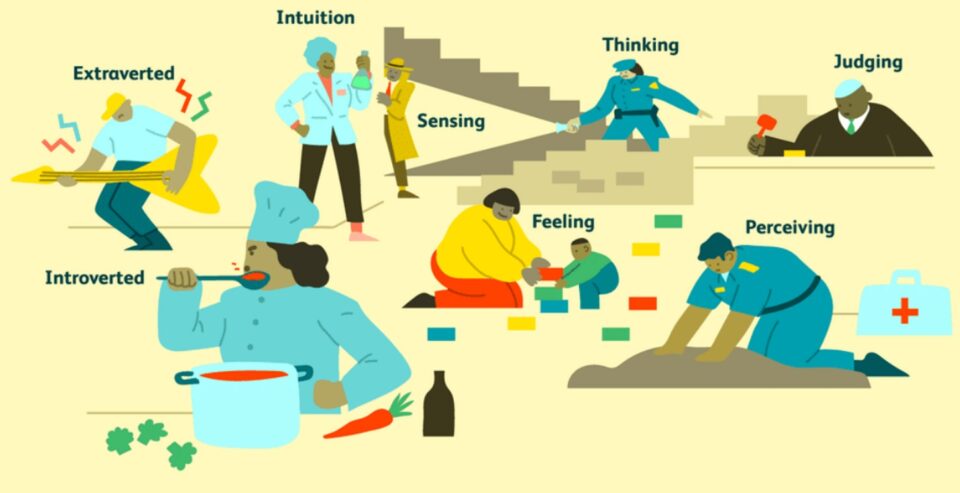Are you religious or are you spiritual?

religious or spiritual
“Are you religious or are you spiritual?”
Rev. Dr. Tony Larson
08-14-2022
I’d like to try a little experiment. If I were to ask you, “Do you consider yourself more religious or more spiritual?” how many of you would say “religious”? (Please raise your hands.) How many of you would say “neither”? How many of you would say “both”? How· many of you would say; “It doesn’t matter because they’re both the same thing?”
You hear a lot of people say, “Oh, I’m not religious, but I am spiritual. But, what do they mean? Lutheran sociologist and theologian Martin Marty said in Christian Century magazine: “Spirituality is that contemporary code word for gaseous, noncommittal religion, that evasive term that may refer to little more than a warm tingle in the toes.” Well, I probably shouldn’t even try to define spirituality, or distinguish it from religion. But, of course, I’m going to anyway. but with this proviso: Please take what I am about to say with at least a round of salt. There is no clear way to divide up these words, and my way of doing it is just one of many.
To begin then, the word “religion” comes from the Latin “religio,” which, in tum, comes from the verb “religo,” meaning “to tie up; to fasten together.” We get our word “lig-ament” from the same root-the “lig” in ligament means to tie together. People are fond of harkening back to this Latin verb to show that religion is what binds people together. However, although the Latin verb “religo” meant to bind together, the noun “religio” had a more specific and narrow meaning. “Religio” meant scrupulousness, or conscientious exactness. The original sense of religion had to do with being tied up–or bound-bound to certain rules, to certain prescriptions and regulations. In fact, to ask what a person’s religion is, is something like asking what set of rules he/she follows.
“Spiritual.” on the other hand, comes from the Latin word “spiritus,” meaning “air” or “breath,” which, in tum, comes from the Latin “spiro,” meaning “to breathe.” And what is breath? Ifs air. It’s air that goes in and out of your body. And what’s wind? That’s air too-moving air. And what’s fragrance or smell? That’s also air, only as experienced through our noses. Air, breath, wind, fragrance they’re all the same thing, really, and the Latins had one word for all of them: “spiritus.” What’s interesting about these is that they’re invisible. Watch this… (Tony blows paper out of his hand.) Did you see the paper move? (Yes) Did you see what moved the paper? (No) You just witnessed an invisible power. You can call it air or breath or Hurricane Tony, but the ancients would have called it a spirit. You know why they used incense and anointed with oil in their ceremonies, by the way? Incense is a kind of air-something you smell but don’t see. Anointing with sweet-smelling oil, or perfume, gives you a new kind of breath, a new air about you, something you smell but can’t see. So both incense and oil were common symbols of spirit.
In fact, the word “Christ,” from which we get the word “Christian,” comes from the Greek “Christos,” meaning “anointed.” And “Christos,” in turn, comes from the Hebrew word “Meshiah” (or as we would say it in English, “Messiah”)-again, meaning “anointed.” An anointed person was one who had God’s breath around him-God”s wind, or spirit. Incidentally, we have a trace of this association in English. The word “gust,” as in “a gust of wind” is related to the word ghost, or spirit. And when you read the Bible, those of you who do, you’ll find that it says, right at the beginning of the very first book:
In the beginning
God created the heavens and the earth.
The earth was without form and void,
and darkness
was upon the face of the deep.
And the _____ of God
was moving over the face of the earth. (Genesis 1:1-2)
Some Bibles translate that as the “spirit of God”; some say “the wind of God”; some say the “breath of God.” And that’s because for the ancients, they were all the same thing. The ancients didn’t know air is made up of physical atoms and molecules-to them it was an invisible power. They wouldn’t make a distinction between breath and spirit, as we do.
“Religion” comes from the Latin word for being tied up; “spirituality” from the Latin word for wind. If you don’t think those are two very different things, try to tie up the wind some time. Try to even catch it. With these root meanings in mind, I’d like to offer my reflections on the difference between religion and spirituality.
Religion is the things that tie you up, that fasten you together. In other words, it’s about rules. That’s why religion is easier to talk about than spirituality. You can ask someone what religion he or she is, and get a fairly straightforward answer. Most people know what rules they have or don’t have. But ask, “What is your spirituality?” and you may get a blank stare. Your spirituality is not revealed in your beliefs or creeds. It is revealed in your insights. One way to grasp the difference between religion and spirituality, then, is to look at the difference between doctrines and insights. A doctrine is something that’s given to you; an insight is something you have yourself. For no one else can have an insight for you — no one else can say “Aha!” for you! Insight, like everything else about spirituality, is something that happens within you-it is never borrowed and accepted from someone else.
Whereas a doctrine is. Take as an example the doctrine of the incarnation. That’s the teaching that God has come down into the world in earthly form. “The word was made flesh and dwelt amongst us.” For the first person who thought up this idea, it was an insight. But, for everyone who accepts it only because someone passed it on, it’s merely a doctrine. You know the difference because you don’t speak the same way about doctrines and insights. The first person who thought up the incarnation probably said, “Hey, I just had a fantastic insight about God.” He or she did not say, “Hey, I just had a doctrine.” Something else that reveals the kind of spirituality you have is that which grounds your ethical or moral behavior. In other words, what is the reason you try to be good? If you’re loving your neighbor as yourself-for what it’ll get you in the end-then your ethics are grounded only in religion.
The spiritual person has inside reasons for doing good. People who have only religion don’t know this. That”s why they don’t trust people who don’t believe in hell. You see, if you have only outside reasons for love, you’ll think that those who don’t have outside reasons can’t love at all. Which is a great irony. For I say about those who love only for what it gets them-what kind of love is that?
Swami Vivekananda, a founder of the Ramakrishna Order of Monks in Indiain the late 19th century, once put it this way: “The dualist thinks you can’t be moral unless you have a god with a rod in his hand, ready to punish you.” This kind of person is like the horse who was asked to give a lecture on morality. This was “one of those very wretched cab horses who moves only with a whip.” The horse began by saying that human beings are of course very immoral. When asked why he believed humans are immoral, the horse answered, “Because I know they’re not whipped regularly.” From his point of view, he was right!
A Muslim story with the same message but from a slightly different angle, is the one about the angel who was seen walking the earth with a bucket of water in one hand and a torch in the other. When asked what she was doing, the angel replied, “With this water I’m going to put out all the fires of hell; with this torch I’m going to burn down all the castles in heaven-then we’ll see who really loves God.”
When all your reasons for loving your neighbor are outside ones, you’ve got religion only. When you love your neighbor because that makes you part of something bigger than you, and that “something” is more truly you than you otherwise are, that is spirituality.
Religion is playing by the rules. Spirituality is making some of them up. Religion often is a sedative, what Marx called “the opiate of the masses.” Spirituality is not a sedative; it’s a stimulant. Religion is given to you from on high. Spirituality is an inside job-and it’s a job you can’t hire anyone else to do for you. You have a religion; you are a spirituality. Religion is what you give to people who are afraid to be spiritual. Spirituality is something you can’t give to anyone else, but if you could, it would be to those who are no longer afraid. Religion is for those who fear hell; spirituality is for those who have been there.
And that’s all I really have to say about it. Some of you may complain that I haven’t neatly tied up the subject this morning. I haven’t really given you a very precise definition of spirituality. All I can answer is:
If I could give you a precise definition, it wouldn’t be spirituality —
it would be a tying up with “religio” And there’s not much room in that… for wind.



